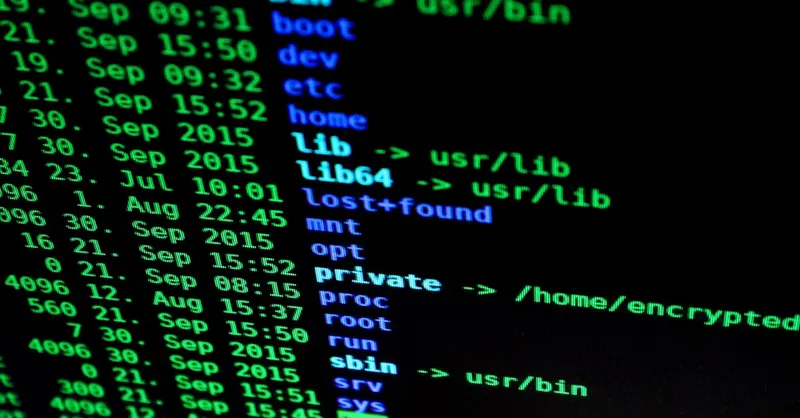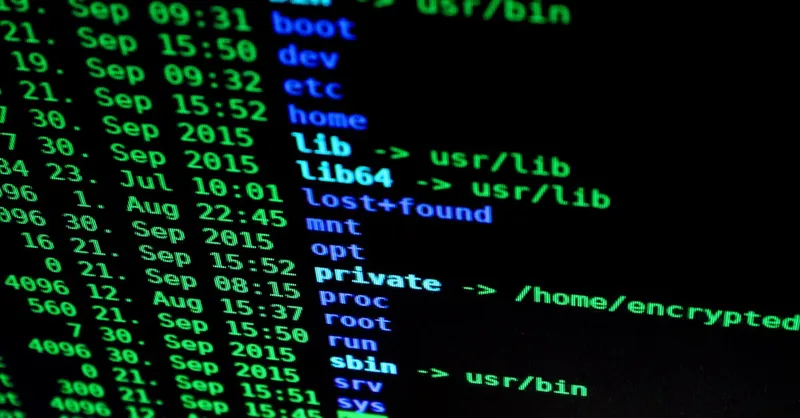Ethical Hacking vs Black Hat Hacking: Key Differences Explained
Category: Ethical Hacking
Understanding Ethical Hacking vs Black Hat Hacking
If you're new to the world of hacking or an aspiring hacker aiming to dive deeper into cybersecurity, distinguishing between ethical hacking and black hat hacking is crucial. You’ve probably come across both terms countless times but felt the need for a clear, straightforward explanation tailored just for beginners and intermediate hackers alike. This post is designed exactly for you — whether you’re curious about how ethical hackers protect systems or eager to understand what sets black hat hackers apart in motives, techniques, and consequences.
We understand the confusion the hacking world can create, especially with overlapping jargon and sometimes sensationalized media stories. Our goal here is to help you decode the ethical boundaries, legal frameworks, and technical approaches that separate the white hats from the black hats. We’ll break down complex ideas into digestible sections, giving you foundational clarity and advanced insight.
By the end of this article, you will not only understand the fundamental differences but also how these roles impact cybersecurity at large and your own journey in ethical hacking. We at Beginner Hackers Hub focus on blending theory, hands-on practices, and ethical considerations so you can confidently explore hacking in a responsible, lawful way — setting you apart from those who exploit vulnerabilities for malicious gains.
- Understanding Ethical Hacking vs Black Hat Hacking
- Defining Ethical Hacking: What It Means and Why It Matters
- Understanding Black Hat Hacking: Motives, Methods, and Impact
- Legal and Ethical Boundaries: How the Law Views Ethical vs Black Hat Hackers
- Tools and Techniques: Comparing the Arsenal of Ethical and Black Hat Hackers
- Career Paths: Opportunities in Ethical Hacking vs the Risks of Black Hat Hacking
- Common Misconceptions and Myths About Ethical and Black Hat Hacking
- Myth 1: All Hackers Are Criminals
- Myth 2: Ethical Hacking Is Easier Than Black Hat Hacking
- Myth 3: Black Hat Hackers Are All Lone Wolves or Geniuses
- Myth 4: Ethical Hackers Work in Isolation
- Myth 5: Ethical Hacking Encourages Illegality
- Understanding and dispelling these myths is vital for aspiring hackers who want to engage with cybersecurity responsibly. At Beginner Hackers Hub, we strive to provide accurate, clear information that empowers you to avoid pitfalls and confidently pursue ethical hacking as a positive, impactful career path. Embracing the truth about ethical versus black hat hacking not only sharpens your technical skills but also fosters a principled approach that the cybersecurity industry values highly.
- The Role of Ethical Hacking in Strengthening Cybersecurity Frameworks
- How to Start Your Journey as an Ethical Hacker: Skills and Resources
- Case Studies: Real-world Examples Illustrating Ethical vs Black Hat Hacking
- The Future of Hacking: Emerging Trends in Ethical and Black Hat Practices
Defining Ethical Hacking: What It Means and Why It Matters
Ethical hacking, also known as white hat hacking, refers to the practice of deliberately probing and testing computer systems, networks, or applications to identify security vulnerabilities before malicious hackers can exploit them. Unlike black hat hackers who use their skills for illegal activities or personal gain, ethical hackers work with transparency, permission, and a goal to improve security. This proactive approach not only helps organizations safeguard sensitive data but also strengthens the overall cybersecurity landscape.
Why does ethical hacking matter? Because in today’s hyper-connected world, cyber threats are evolving rapidly, putting businesses, governments, and individuals at constant risk. Ethical hackers serve as the first line of defense by simulating real-world attacks in a controlled environment. Their findings enable companies to fix loopholes, ensure compliance with legal and industry standards, and build trust with customers. For beginners eager to embark on a career in cybersecurity, understanding ethical hacking means embracing responsibility, legal frameworks, and continuous learning — all crucial elements to become a skilled, reputable security professional. This foundation sets ethical hackers markedly apart from those who exploit vulnerabilities for harm, revealing why ethical hacking is both a necessary and respected discipline within the hacking community.

Image courtesy of Antoni Shkraba Studio
Understanding Black Hat Hacking: Motives, Methods, and Impact
While ethical hackers operate with permission and clear intentions, black hat hacking represents the darker side of cybersecurity. Black hat hackers exploit security weaknesses for personal gain, financial profit, or malicious intent, often breaking laws and causing significant damage to individuals, businesses, and governments. Their activities can range from stealing sensitive data, disrupting services through ransomware or denial-of-service (DoS) attacks, to deploying malware that compromises entire networks.
Common Motives Behind Black Hat Hacking
- Financial Gain: Many black hat hackers engage in activities such as credit card fraud, identity theft, or ransomware attacks to generate money illegally.
- Political or Social Agendas: Hackers motivated by ideology, often called hacktivists, launch attacks to promote causes by exposing information or disrupting targeted organizations.
- Espionage and Sabotage: Some black hats work as cyber spies for corporations or nations, stealing intellectual property or confidential data.
- Personal Challenge or Notoriety: For certain individuals, the thrill of breaching systems or gaining recognition within underground communities drives their actions.
Techniques and Tools Used by Black Hat Hackers
Black hat hackers employ sophisticated and evolving techniques to evade detection and maximize impact:
- Exploitation of Zero-Day Vulnerabilities: Using previously unknown security flaws before patches are available.
- Phishing and Social Engineering: Tricking users into revealing credentials or installing malware.
- Malware Deployment: Including viruses, trojans, ransomware, and spyware to compromise systems.
- Botnets and DDoS Attacks: Controlling vast networks of infected devices to overwhelm targets.
- Password Cracking and Credential Stuffing: Leveraging leaked databases to break into accounts.
The methods are constantly innovated, often inspired by underground forums and hacker communities where tools and exploits are shared, making black hat threats increasingly sophisticated and dangerous.
The Widespread Impact of Black Hat Hacking
Black hat hacking poses severe risks far beyond immediate victims:
- Financial Losses: Cybercrime costs businesses and individuals billions annually through theft, fraud, and recovery expenses.
- Data Breaches and Privacy Violations: Exposure of sensitive information can lead to identity theft, reputational damage, and regulatory penalties.
- Disruption of Critical Infrastructure: Attacks can paralyze essential services like healthcare, transportation, and utilities.
- Erosion of Trust: Customers and stakeholders lose confidence in affected organizations, damaging brand credibility.
- Legal Consequences for Perpetrators: Black hat hackers face prosecution, stiff fines, and imprisonment under cybersecurity laws worldwide.
Understanding these motives and impacts is essential for beginner hackers aiming to align with ethical principles. Recognizing the real-world harm caused by black hat activities highlights why pursuing ethical hacking—and staying on the right side of the law—is not only a responsible choice but a crucial contribution to improving global cybersecurity resilience.

Image courtesy of Tima Miroshnichenko
Legal and Ethical Boundaries: How the Law Views Ethical vs Black Hat Hackers
Navigating the legal and ethical boundaries is a fundamental aspect that distinctly separates ethical hackers from black hat hackers. While both groups possess advanced technical skills, the law draws a clear line based on intent, consent, and impact. Ethical hacking operates within a strict legal framework that emphasizes authorization, transparency, and responsible disclosure. Before conducting any security testing, ethical hackers obtain explicit permission from the system owners, ensuring that their actions comply with local and international laws. This legal endorsement protects ethical hackers from prosecution and recognizes their crucial role in strengthening cybersecurity defenses.
In contrast, black hat hackers disregard these legal boundaries by engaging in unauthorized access, data theft, and system disruption, making their activities unequivocally illegal. Laws such as the Computer Fraud and Abuse Act (CFAA) in the United States, the General Data Protection Regulation (GDPR) in Europe, and various cybercrime statutes worldwide criminalize unauthorized hacking activities. Penalties for black hat hacking can include hefty fines, imprisonment, and lifelong criminal records. Understanding these legal distinctions empowers beginner hackers to pursue ethical hacking responsibly and avoid the severe consequences associated with illegal cyber activities. In addition, ethical hackers often adhere to professional codes of conduct and guidelines provided by organizations like EC-Council and (ISC)², reinforcing the importance of integrity, confidentiality, and accountability in their work.

Image courtesy of Pixabay
Tools and Techniques: Comparing the Arsenal of Ethical and Black Hat Hackers
Both ethical hackers and black hat hackers rely on a diverse set of tools and techniques to achieve their objectives, but their purposes and methods vary dramatically. Understanding these differences is essential for beginner hackers as it highlights not only how vulnerabilities are exploited but also how they can be responsibly identified and mitigated.
Tools Used by Ethical Hackers
Ethical hackers leverage legitimate and widely recognized tools designed for security testing, vulnerability assessment, and system hardening. These tools allow them to simulate attacks safely and report weaknesses to system owners:
- Network Scanners: Tools like Nmap and Angry IP Scanner help ethical hackers map networks and identify live hosts, open ports, and services.
- Vulnerability Scanners: Programs such as Nessus, OpenVAS, and Qualys automate the detection of known security flaws.
- Penetration Testing Suites: Frameworks like Metasploit assist ethical hackers in safely exploiting vulnerabilities to assess the risk level.
- Password Cracking Tools: Utilities like John the Ripper and Hashcat help test the strength of passwords under controlled conditions.
- Web Application Assessment: Tools like Burp Suite and OWASP ZAP are used to analyze and exploit weaknesses in web applications securely.
Ethical hackers complement these tools with manual techniques such as code review, social engineering tests (conducted with consent), and continuous monitoring. Importantly, their goal is to reveal vulnerabilities without causing harm or disruption.
Tools and Techniques Favored by Black Hat Hackers
Black hat hackers use similar or even more advanced tools but with malicious intent and often favor techniques that maximize stealth and damage:
- Exploitation Frameworks: Like Metasploit, but exploited without permission, often combined with zero-day exploits.
- Malware Kits: Custom or readily available malware for ransomware, spyware, and trojans to infiltrate and maintain control over victims’ systems.
- Phishing Toolkits: Automated systems to launch massive social engineering campaigns and harvest credentials.
- Botnets: Networks of compromised devices used for Distributed Denial of Service (DDoS) attacks or as proxies to conceal origin.
- Custom Scripts and Obfuscation: Creating or modifying scripts to evade antivirus detection and forensic analysis.
Key Technique Differences at a Glance
| Aspect | Ethical Hackers | Black Hat Hackers |
|---|---|---|
| Permission | Operate with explicit authorization | Conduct unauthorized intrusions |
| Objective | Identify and fix security weaknesses | Exploit vulnerabilities for gain or harm |
| Impact | Non-disruptive testing, minimal risk | Potentially destructive and covert |
| Tools Usage | Open-source and licensed security tools | Includes malware, exploit kits, and illegal software |
| Disclosure | Responsible reporting with remediation plans | Concealment and exploitation |
By mastering the ethical hacker’s toolkit and adhering to legal and ethical standards, beginner hackers can develop skills that contribute to safeguarding digital ecosystems. Recognizing the powerful yet potentially destructive nature of these tools emphasizes the responsibility that comes with cyber expertise, further underscoring why ethical hacking is a profession grounded in integrity and positive impact.

Image courtesy of cottonbro studio
Career Paths: Opportunities in Ethical Hacking vs the Risks of Black Hat Hacking
Choosing a path in hacking fundamentally shapes your professional future and personal reputation. Ethical hacking offers a rewarding and lawful career trajectory, while black hat hacking entails significant legal risks and personal consequences that often end in criminal charges.
Opportunities in Ethical Hacking
The demand for skilled ethical hackers—also known as white hat hackers or penetration testers—is continuously growing as organizations worldwide prioritize cybersecurity. Career options include:
- Penetration Tester: Conduct authorized security assessments to identify vulnerabilities and help organizations improve their defenses.
- Security Analyst: Monitor and analyze systems for threats, providing proactive incident prevention strategies.
- Bug Bounty Hunter: Independently find and responsibly report bugs for rewards through official programs run by major companies.
- Cybersecurity Consultant: Advise companies on security best practices, policy development, and risk management.
- Incident Responder: Manage and mitigate active cyber incidents, minimizing damage and recovery time.
Besides competitive salaries, ethical hackers benefit from professional certifications like CEH (Certified Ethical Hacker), OSCP (Offensive Security Certified Professional), and CISSP (Certified Information Systems Security Professional). These credentials validate skills and open doors to high-profile roles in a rapidly expanding industry. Additionally, a career in ethical hacking offers intellectual challenge, continuous learning, and the fulfillment of protecting critical digital assets.
Risks and Consequences of Black Hat Hacking
In stark contrast, pursuing black hat hacking carries severe legal, ethical, and personal risks:
- Criminal Prosecution: Unauthorized hacking is illegal worldwide, punishable by heavy fines and imprisonment.
- Permanent Criminal Record: Convictions severely limit future employment and travel opportunities.
- Financial Penalties: Victim lawsuits and restitution payments can result in crippling debt.
- Social Stigma and Loss of Trust: Involvement in cybercrime damages personal and professional reputation irreversibly.
- Psychological Toll: Fear of detection, distrust from peers, and ethical conflicts often affect mental well-being.
While some black hat hackers may achieve short-term gains or notoriety, the long-term consequences typically outweigh any benefits. From an ethical and practical perspective, this path is fraught with danger and instability.
Why Ethical Hacking is the Smart Choice for Beginners
For those entering the hacking world, embracing ethical hacking not only secures career longevity but also positions you as a cybersecurity guardian committed to making the internet safer. By choosing this path, beginner hackers can:
- Build a legal and respected professional reputation.
- Access global job markets hungry for cybersecurity talent.
- Enjoy the rewards of positive social impact through defensive security efforts.
- Benefit from continuous skill development in a dynamic and evolving field.
Understanding the divergent career outcomes and risks of ethical versus black hat hacking is essential to making informed decisions. At Beginner Hackers Hub, we champion the ethical path because it empowers you to harness your hacking skills responsibly, advancing both your career and the broader mission of cybersecurity.

Image courtesy of Antoni Shkraba Studio
Common Misconceptions and Myths About Ethical and Black Hat Hacking
In the cybersecurity community, misconceptions and myths about ethical hacking and black hat hacking abound, often fueled by sensationalized media portrayals or misunderstanding of hacker culture. These myths can create confusion for beginners and even discourage aspiring ethical hackers from pursuing a legitimate career. Clarifying these misunderstandings is crucial for cultivating an informed, responsible hacking mindset.
Myth 1: All Hackers Are Criminals
One of the most pervasive myths is that all hackers are cybercriminals engaged in illegal activities. In reality, hackers come in many forms, with ethical hackers (white hats) using their skills to protect systems and enhance security. Ethical hacking is a legal and respected profession practiced worldwide by cybersecurity experts who follow strict codes of conduct. Equating hacking solely with crime ignores the vital defensive role ethical hackers play in strengthening digital safety.
Myth 2: Ethical Hacking Is Easier Than Black Hat Hacking
Another misconception is that ethical hacking is simply “playing nice” hacking, and therefore less challenging or impactful than black hat hacking. In truth, ethical hacking requires deep technical expertise, creativity, and adherence to strict legal and ethical standards. Ethical hackers must continuously update their skills to keep pace with evolving cyber threats, often simulating sophisticated attacks without causing harm. This demands far greater responsibility and precision than the reckless exploitation associated with black hats.
Myth 3: Black Hat Hackers Are All Lone Wolves or Geniuses
Popular culture often depicts black hat hackers as either isolated geniuses or shadowy masterminds running complex attacks solo. While some hackers operate independently, many black hats belong to well-organized cybercrime groups or underground communities sharing resources and knowledge. Understanding this reality helps beginners recognize that black hat activities often involve coordinated efforts, making defense through ethical hacking and collaboration even more critical.
Myth 4: Ethical Hackers Work in Isolation
The stereotype that ethical hackers work alone in dark rooms is misleading. Ethical hacking is inherently collaborative, involving teamwork with IT departments, management, and compliance officers. Effective ethical hackers communicate vulnerability findings clearly and work alongside developers to implement timely fixes, making cybersecurity a multidisciplinary effort rather than a solo endeavor.
Myth 5: Ethical Hacking Encourages Illegality
Some skeptics claim that ethical hacking blurs the line and might indirectly encourage illegal hacking by sharing powerful tools or techniques. However, ethical hacking emphasizes responsible use, legal authorization, and strict confidentiality. Reputable ethical hackers follow responsible disclosure policies and often contribute to public security knowledge without endangering users or systems.
Understanding and dispelling these myths is vital for aspiring hackers who want to engage with cybersecurity responsibly. At Beginner Hackers Hub, we strive to provide accurate, clear information that empowers you to avoid pitfalls and confidently pursue ethical hacking as a positive, impactful career path. Embracing the truth about ethical versus black hat hacking not only sharpens your technical skills but also fosters a principled approach that the cybersecurity industry values highly.

Image courtesy of Tima Miroshnichenko
The Role of Ethical Hacking in Strengthening Cybersecurity Frameworks
Ethical hacking plays a vital role in reinforcing and evolving cybersecurity frameworks by proactively identifying and mitigating vulnerabilities before malicious actors can exploit them. Organizations today face increasingly sophisticated cyber threats requiring not just reactive defense, but a strategic approach that integrates ethical hacking into their security lifecycle. Ethical hackers conduct controlled penetration tests, vulnerability assessments, and security audits that provide actionable insights for improving system resilience. Their work helps to:
- Uncover Hidden Weaknesses: Ethical hackers simulate real-world attack scenarios to detect security gaps that automated tools or routine checks might miss.
- Enhance Incident Response Preparedness: By exposing potential breach points, organizations can develop stronger detection and response strategies to minimize damage during actual attacks.
- Ensure Regulatory Compliance: Many industries mandate regular security assessments under regulations like GDPR, HIPAA, and PCI-DSS, where ethical hacking contributes essential evidence of due diligence.
- Promote Secure Software Development: Integrating ethical hacking practices into the Software Development Life Cycle (SDLC) encourages early detection of flaws, reducing vulnerabilities in released products.
- Build Stakeholder Trust: Demonstrating commitment to proactive security measures reassures customers, partners, and investors that data protection is a priority.
In effect, ethical hacking acts as a critical feedback mechanism within cybersecurity frameworks, continuously improving defenses and enabling organizations to stay ahead of emerging threats. For beginners entering the field, mastering ethical hacking skills is not only about technical prowess but about understanding how to contribute meaningfully to the broader ecosystem of digital security. This emphasis on prevention, compliance, and collaboration distinguishes ethical hacking as an indispensable component in today’s cybersecurity strategies.

Image courtesy of Pixabay
How to Start Your Journey as an Ethical Hacker: Skills and Resources
Embarking on a career in ethical hacking requires a strong foundation of technical skills, a commitment to continuous learning, and access to the right resources tailored for beginners. To start your journey effectively, focus on building expertise in key areas such as network fundamentals, operating systems, and programming languages—all of which are essential for understanding how systems work and where vulnerabilities lie.
Essential Skills for Beginner Ethical Hackers
- Networking Basics: Gain a clear understanding of protocols (TCP/IP, DNS, HTTP/S), network architecture, and common vulnerabilities to identify weak points in communication channels.
- Operating Systems Knowledge: Become proficient in Windows, Linux, and UNIX systems, as ethical hackers often analyze system configurations and permissions to find security gaps.
- Programming and Scripting: Learn languages like Python, Bash, or PowerShell to automate tasks, write custom scripts, and manipulate exploits responsibly.
- Cybersecurity Principles: Study encryption, authentication, firewalls, and intrusion detection systems to grasp how defenses operate and how to test their robustness.
- Tools and Techniques Mastery: Familiarize yourself with industry-standard ethical hacking tools such as Nmap, Metasploit, Burp Suite, and Wireshark to perform controlled penetration testing and vulnerability scanning.
Recommended Learning Resources for Ethical Hackers
- Online Courses and Tutorials: Platforms like Coursera, Udemy, and Cybrary offer beginner-friendly ethical hacking courses that cover foundational concepts and hands-on labs.
- Books and Guides: Titles such as “The Web Application Hacker’s Handbook” and “Hacking: The Art of Exploitation” provide in-depth knowledge and practical examples.
- Certifications: Pursuing recognized credentials like Certified Ethical Hacker (CEH) or CompTIA Security+ validates your skills and enhances employability.
- Practice Platforms: Engage with interactive environments like Hack The Box, TryHackMe, and OverTheWire to apply your knowledge in simulated scenarios safely.
- Community Involvement: Join ethical hacking forums, Discord groups, and local cybersecurity meetups to network, seek mentorship, and stay updated with the latest trends.
By systematically developing these skills and leveraging quality resources, beginner hackers can build a solid ethical hacking foundation that not only prepares them for real-world cybersecurity challenges but also aligns with legal and ethical standards. Starting your journey with a focus on responsibility, knowledge, and practical experience ensures you progress confidently towards becoming a proficient ethical hacker.

Image courtesy of Antoni Shkraba Studio
Case Studies: Real-world Examples Illustrating Ethical vs Black Hat Hacking
To truly understand the impact and significance of ethical hacking versus black hat hacking, examining real-world case studies provides valuable insights. These examples highlight how ethical hackers protect critical assets and how black hat hackers exploit vulnerabilities for malicious purposes.
Ethical Hacking Success Stories
-
Uber’s Bug Bounty Program and Data Protection: In 2016, Uber launched a comprehensive bug bounty program inviting ethical hackers globally to test their systems. Ethical hackers reported several critical vulnerabilities before any exploitation occurred, enabling Uber to patch security flaws proactively. This initiative not only prevented potential data breaches affecting millions of users but also showcased how collaborative efforts with white hat hackers can safeguard corporate reputations.
-
The Stuxnet Incident Response: When the Stuxnet worm targeted Iranian nuclear facilities, several cybersecurity experts—acting as ethical hackers—analyzed and reverse-engineered the malware to understand its mechanisms. Their findings led to improved security protocols worldwide, demonstrating ethical hackers’ crucial role in dissecting complex cyber threats to enhance global cybersecurity resilience.
Black Hat Hacking Breaches and Consequences
-
Equifax Data Breach (2017): One of the largest and most devastating black hat hacking incidents involved cybercriminals exploiting a known vulnerability in Equifax’s systems, compromising sensitive information of over 147 million people. The breach resulted in massive financial losses, legal repercussions for the company, and long-term damage to public trust. This case underscores the devastating consequences when organizations fail to stay ahead of threats that ethical hackers strive to prevent.
-
WannaCry Ransomware Attack (2017): The WannaCry ransomware spread rapidly, encrypting data on hundreds of thousands of computers worldwide. Black hat hackers utilized phishing campaigns and exploited unpatched Windows vulnerabilities, causing widespread operational disruptions across healthcare, government, and private sectors. The outbreak highlighted the critical need for ethical hacking practices in vulnerability management and timely patching.
Key Takeaways from Case Studies
- Proactive Ethical Hacking Saves Costs and Reputation: Organizations that engage ethical hackers reduce the risk and impact of cyber attacks by identifying flaws before exploitation.
- Black Hat Hacking Exploits Negligence and Unpatched Vulnerabilities: Cybercriminals capitalize on delays in security updates, weak defenses, and lack of ethical security assessments.
- Collaboration Between Ethical Hackers and Organizations is Crucial: Continual ethical testing and responsible disclosure foster stronger defense mechanisms.
- Real-World Impact Emphasizes Ethical Responsibility: These cases reinforce why understanding the difference between ethical and black hat hacking matters deeply for cybersecurity professionals and aspiring hackers alike.
By studying these real incidents, beginner hackers can appreciate how ethical hacking not only mitigates risks but fundamentally strengthens digital security ecosystems—contrasting sharply with the destructive motives driving black hat hackers. Embracing this knowledge solidifies your commitment to ethical hacking as a positive force within the cybersecurity landscape.

Image courtesy of Tima Miroshnichenko
The Future of Hacking: Emerging Trends in Ethical and Black Hat Practices
As cybersecurity continues to evolve at a rapid pace, the landscape of both ethical hacking and black hat hacking is transforming with new technologies, attack vectors, and defense mechanisms. Staying informed about these emerging trends is essential for beginner hackers committed to ethical hacking, as well as for understanding how black hat tactics are adapting and becoming more sophisticated.
Emerging Trends in Ethical Hacking
- AI-Powered Security Testing: Ethical hackers are increasingly leveraging artificial intelligence and machine learning to automate vulnerability detection and threat analysis. These intelligent tools enhance penetration testing precision, helping identify subtle weaknesses that traditional methods might miss.
- Cloud Security Focus: With the widespread adoption of cloud computing, ethical hackers are developing specialized skills to assess cloud platforms like AWS, Azure, and Google Cloud. Understanding cloud infrastructure security has become vital to protecting dynamic and distributed environments.
- DevSecOps Integration: Security is being embedded directly into the development lifecycle (“shift-left” approach). Ethical hackers collaborate closely with developers and operations teams to implement continuous security testing, ensuring vulnerabilities are addressed early and efficiently.
- IoT and Embedded Device Testing: The explosion of Internet of Things (IoT) devices presents new challenges. Ethical hackers are expanding expertise to test these interconnected, often resource-constrained devices, which frequently have overlooked vulnerabilities.
- Bug Bounty and Crowdsourced Security: Companies are increasingly adopting bug bounty programs and crowdsourcing ethical hacking efforts to tap into a global pool of security researchers. This trend encourages diverse testing approaches and quicker discovery of flaws.
Evolving Black Hat Hacking Tactics
- Advanced Persistent Threats (APTs): Black hat hackers are adopting long-term, stealthy intrusion techniques that persist inside networks to conduct espionage or data theft over extended periods.
- Ransomware-as-a-Service (RaaS): The commoditization of ransomware allows less skilled attackers to launch sophisticated attacks by subscribing to malware platforms, dramatically increasing the volume and reach of black hat campaigns.
- Deepfake and Social Engineering Attacks: Combining AI-generated deepfake technology with social engineering creates more believable phishing and impersonation scams, making it harder to discern real from fake communications.
- Targeting Supply Chains: Black hats increasingly focus on compromising trusted third-party vendors and suppliers to infiltrate larger organizations indirectly, bypassing traditional defenses.
- Cryptojacking and Cryptocurrency Exploitation: As cryptocurrencies gain prominence, hackers employ tactics to secretly mine digital coins or steal wallets, adding complexity to financial cybercrime.
Understanding these trends empowers ethical hackers to anticipate future threats and adapt defensive strategies proactively. By mastering emerging technologies, ethical hackers not only improve protection capabilities but also position themselves at the forefront of a cybersecurity ecosystem that continuously balances innovation with security challenges. Staying ahead in this evolving battlefield is vital for those seeking to build a sustainable and impactful career in ethical hacking.

Image courtesy of Tima Miroshnichenko
